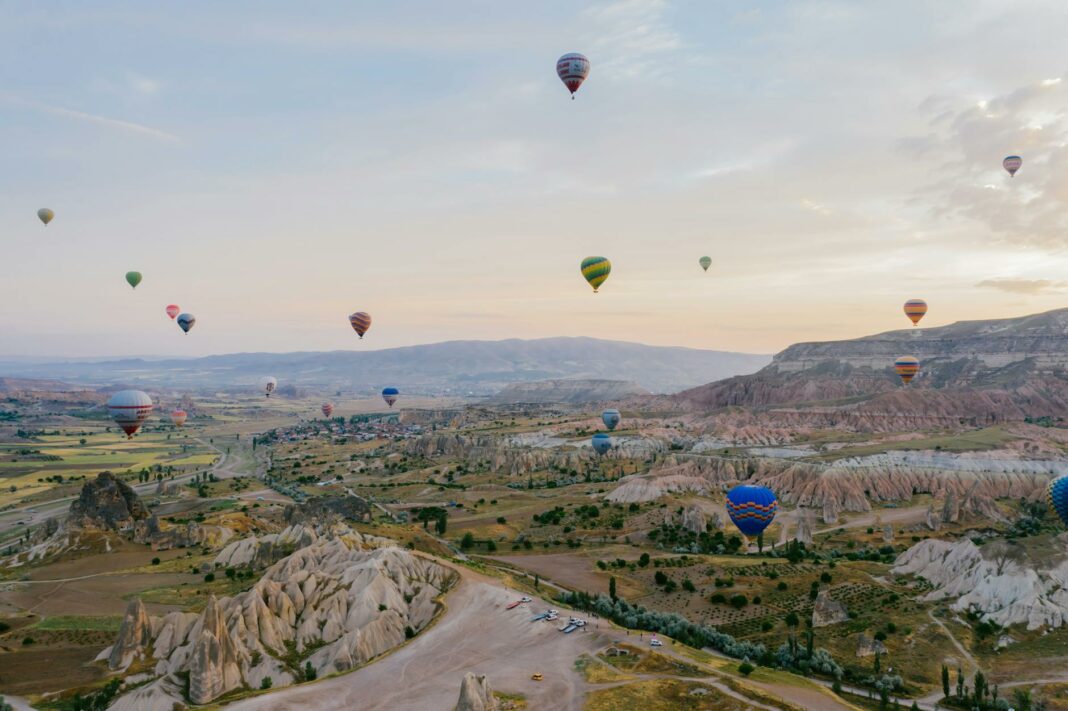Table of Contents
- Introduction
- What is a Pilgrimage?
- The Journey Within
- Changing Perspectives
- Spiritual Discovery
- Community and Connection
- Lasting Impact
- The New Beginning
- FAQs
Pilgrimage is more than merely a physical journey; it is an opportunity for transformation. As individuals traverse sacred spaces and reflect upon their lives, many discover profound insights that shift their perspectives forever. This exploration is not just about reaching a destination; it is about the experiences and revelations along the way that can ignite a spark of change deep within.
In this blog post, we will delve into the enchanting world of pilgrimage, examining how this age-old tradition can lead to lasting personal transformation. From the inner journey to communal bonds, each aspect contributes uniquely to the potential for life-changing experiences, creating pathways to self-awareness, growth, and renewed purpose.
At its core, a pilgrimage is a journey of significance, often undertaken to a site of spiritual importance. Originating from various cultural and religious traditions, pilgrimages can be both personal and collective. This venerable practice has inspired countless pilgrims over centuries, motivating them to embark on adventures that lead to self-discovery and enlightenment. Historically rooted in sacred narratives, each pilgrimage is imbued with meaning, serving as a catalyst for reflection and introspection.
Pilgrimages may vary in nature, ranging from grand journeys across continents to modest walks in local communities. Despite the differences, they all share a common thread—the quest for understanding, healing, and connection to something greater than oneself. These adventures often challenge physical limits while simultaneously inviting profound psychological and spiritual growth, setting the stage for life-altering realizations.
Embarking on a pilgrimage often initiates an internal shift. As the physical body makes its way through rugged terrains and breathtaking landscapes, the mind clears and focuses, allowing deeper thoughts and emotions to surface. This process fosters a powerful sense of awareness—one that invites introspection. Many pilgrims find that solitude in nature becomes a context for healing and revelation, providing an open space for confronting internal struggles and past traumas that may have remained buried.
Through the simple act of walking toward a destination, individuals may find themselves contemplating life’s bigger questions. Who am I? What do I desire? What changes do I need to make? These contemplative moments create an atmosphere conducive to personal growth, enabling individuals to challenge previous narratives and consider new possibilities for their lives, effectively redefining their paths and priorities.
The transformative power of a pilgrimage echoes through the reframing of one’s worldview. As individuals encounter diverse cultures, landscapes, and fellow travelers, their understanding of life broadens considerably. These experiences can instigate a newfound appreciation for the beauty and complexity of existence, inviting pilgrims to recognize the interconnectedness of all living beings. Embracing different perspectives fosters empathy and a sense of belonging, allowing previously held biases to dissolve in the light of shared humanity.
Additionally, confronting challenges along the journey, whether they are physical hurdles or emotional barriers, pushes pilgrims to rethink their limitations. Far from being a solitary endeavor, the communal aspect of pilgrimage emphasizes a shared understanding of universal struggles. This can lead to a significant shift in how individuals view adversity, instilling resilience and a positive outlook on life as they learn to embrace challenges and uncertainties with open hearts.
The quest for meaning often lies at the heart of a pilgrimage. Many seekers embark on these journeys with the hope of connecting with the divine or exploring their spirituality more profoundly. Engaging with rituals, meditation, or simply immersing oneself in sacred landscapes allows for a deeper exploration of faith and belief systems. This direct engagement encourages individuals to question preconceived notions about spirituality, often leading to a richer, more personal understanding of the divine.
Through this process, pilgrims frequently find themselves encountering moments of grace that feel significant and transformative. Whether it’s a conversation with a fellow pilgrim, a serene moment in nature, or an unexpected insight during meditation, these experiences can ignite profound spiritual awakenings. Such realizations allow individuals to experience life with renewed purpose and clarity, ultimately reshaping their relationships with themselves, others, and the world around them.
While the journey may begin as a solitary experience, pilgrimage has a remarkable way of fostering community and cultivated connection. Pilgrims often find themselves surrounded by like-minded souls, creating opportunities to bond over shared experiences. Sharing meals, stories, and moments of vulnerability lays the groundwork for friendships that may endure long after the pilgrimage concludes. This sense of belonging is vital, as it reminds individuals that they are not alone in their quest for meaning.
Additionally, communities often extend support to pilgrims along their routes, enriching the experience even further. The outreach from locals can create a sense of relationship with the places traveled and the people met. This connection fosters gratitude and enhances the overall pilgrimage experience, serving as a reminder of the profound impact human love and kindness can have on personal journeys toward transformation.
The changes that arise from a pilgrimage often extend beyond the journey itself, weaving into the fabric of daily life. Individuals frequently return home infused with fresh perspectives and renewed purpose, ready to tackle life’s challenges with vigor. They may find themselves reevaluating relationships, their career paths, or their approach to personal well-being, leading to a significant shift in priorities and lifestyle.
Moreover, the lessons learned during the pilgrimage can resurface at various points in life, serving as reminders of the strength cultivated through the journey. Whether through journaling, sharing experiences with others, or even engaging in acts of service, these individuals honor the evolution that took place during their pilgrimage. Ultimately, the impact is not a fleeting experience but a transformative journey that enriches life in lasting ways.
After a pilgrimage, many find themselves standing at the threshold of a new beginning. The journey, steeped in growth, introspection, and community, provides a springboard for ongoing exploration and transformation. Embracing the lessons of the pilgrimage can empower individuals to forge new paths, break limiting patterns, and seek endeavors that align with their authentic selves.
This phase often involves taking actionable steps and integrating newfound insights into daily life. With courage and determination, former pilgrims can redefine their relationships, embrace new passions, and contribute positively to their communities. The pilgrimage, far from being just a journey to a specific location, becomes part of a lifelong quest for self-awareness, spiritual depth, and connection with others—an inspiring adventure that echoes indefinitely.
Can I go on a pilgrimage if I am not religious?
Absolutely! Many people embark on pilgrimages regardless of their religious beliefs. The journey is ultimately about self-exploration and personal transformation, which can be valuable for anyone.
Do I need to be fit to go on a pilgrimage?
While some pilgrimages can be physically demanding, there are a variety of routes tailored to different levels of fitness. The focus should be on your willingness to engage with the journey, not just your physical capabilities.
How do I prepare for a pilgrimage?
Preparation should encompass physical, emotional, and logistical aspects. This includes training for the physical demands, reflecting on personal intentions, and planning the details of your trip, such as accommodations and routes.
Is a pilgrimage safe?
While risks exist like any travel, many pilgrimages are widely trodden paths with established communities and support systems, often ensuring a safe experience for all participants.
How can a pilgrimage impact my daily life?
The insights gained from a pilgrimage can inspire lasting changes. People often find themselves reassessing priorities, strengthening relationships, and embracing healthier habits influenced by their experiences on the journey.
Image Credit: Pexels





